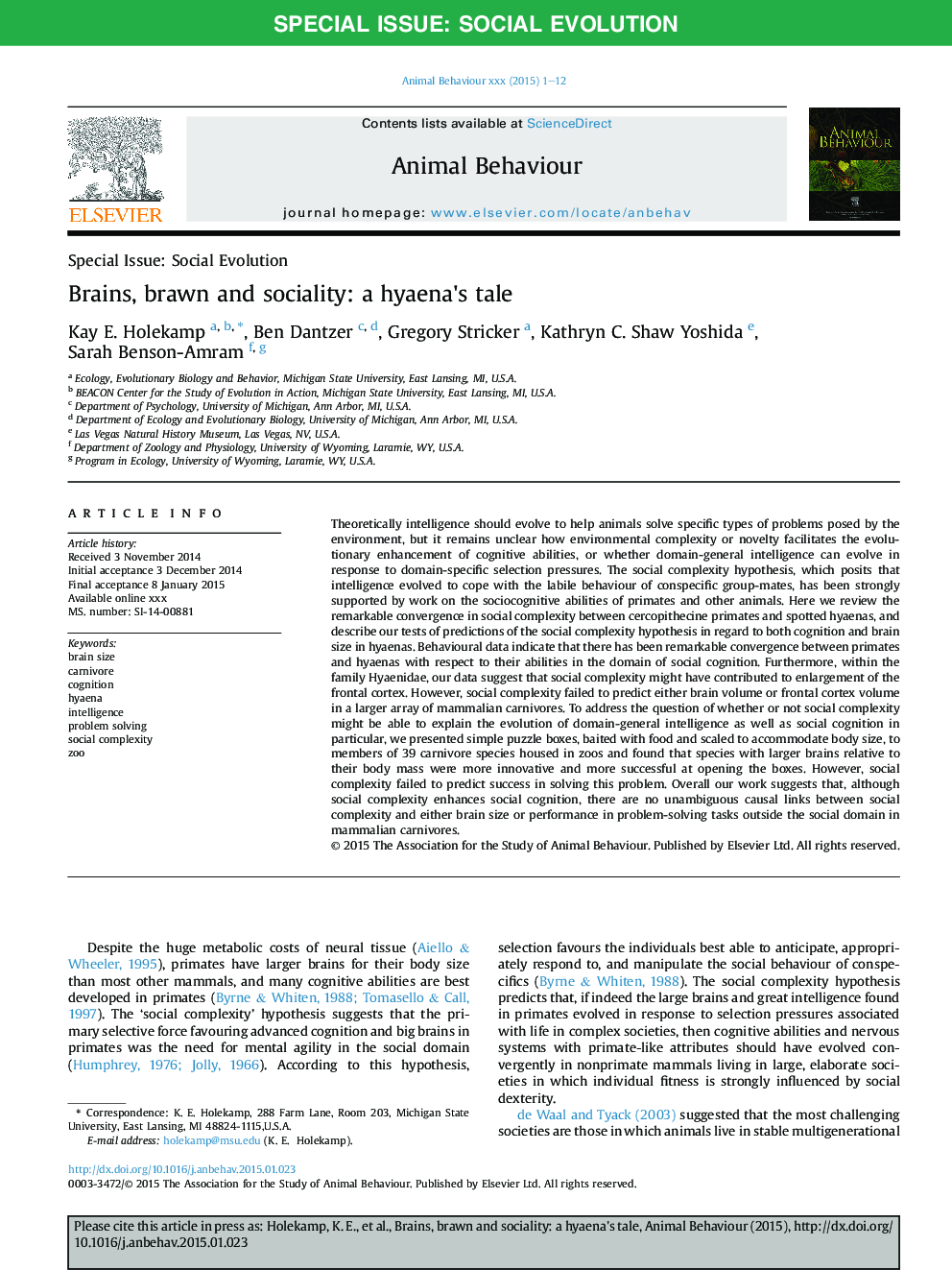| کد مقاله | کد نشریه | سال انتشار | مقاله انگلیسی | نسخه تمام متن |
|---|---|---|---|---|
| 8489979 | 1552225 | 2015 | 12 صفحه PDF | دانلود رایگان |
عنوان انگلیسی مقاله ISI
Brains, brawn and sociality: a hyaena's tale
ترجمه فارسی عنوان
مغز، قارچ و اجتماعی: یک داستان هیانا
دانلود مقاله + سفارش ترجمه
دانلود مقاله ISI انگلیسی
رایگان برای ایرانیان
کلمات کلیدی
موضوعات مرتبط
علوم زیستی و بیوفناوری
علوم کشاورزی و بیولوژیک
علوم دامی و جانورشناسی
چکیده انگلیسی
Theoretically intelligence should evolve to help animals solve specific types of problems posed by the environment, but it remains unclear how environmental complexity or novelty facilitates the evolutionary enhancement of cognitive abilities, or whether domain-general intelligence can evolve in response to domain-specific selection pressures. The social complexity hypothesis, which posits that intelligence evolved to cope with the labile behaviour of conspecific group-mates, has been strongly supported by work on the sociocognitive abilities of primates and other animals. Here we review the remarkable convergence in social complexity between cercopithecine primates and spotted hyaenas, and describe our tests of predictions of the social complexity hypothesis in regard to both cognition and brain size in hyaenas. Behavioural data indicate that there has been remarkable convergence between primates and hyaenas with respect to their abilities in the domain of social cognition. Furthermore, within the family Hyaenidae, our data suggest that social complexity might have contributed to enlargement of the frontal cortex. However, social complexity failed to predict either brain volume or frontal cortex volume in a larger array of mammalian carnivores. To address the question of whether or not social complexity might be able to explain the evolution of domain-general intelligence as well as social cognition in particular, we presented simple puzzle boxes, baited with food and scaled to accommodate body size, to members of 39 carnivore species housed in zoos and found that species with larger brains relative to their body mass were more innovative and more successful at opening the boxes. However, social complexity failed to predict success in solving this problem. Overall our work suggests that, although social complexity enhances social cognition, there are no unambiguous causal links between social complexity and either brain size or performance in problem-solving tasks outside the social domain in mammalian carnivores.
ناشر
Database: Elsevier - ScienceDirect (ساینس دایرکت)
Journal: Animal Behaviour - Volume 103, May 2015, Pages 237-248
Journal: Animal Behaviour - Volume 103, May 2015, Pages 237-248
نویسندگان
Kay E. Holekamp, Ben Dantzer, Gregory Stricker, Kathryn C. Shaw Yoshida, Sarah Benson-Amram,
